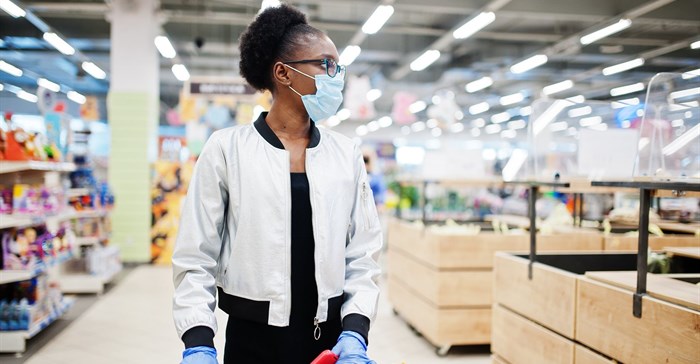
As a result of this a recent Nielsen industry webinar Navigating the New Normal discussed the realities and effects of this rapidly evolving outlook. Speaking during the webinar Nielsen Africa MD Bryan Sun outlined the consumer evolution since the onset of the pandemic and the fact that crisis-buying patterns have accelerated the adoption of permanent behaviour change.
“As the prospect of looming lockdowns first hit, consumers realised they needed to stock up which saw a spike in store visits, stockpiling of shelf staples and growing basket sizes. However, as restricted living became more commonplace, there was a change in behaviour with consumers seeking out products without putting their health at risk.
“We have therefore seen growth in online shopping, declining store visits and a rise in out of stocks. Supply chain challenges have also driven consumers to be less price-sensitive on high demand packaged goods or those that guarantee hygiene standards,” explained Sun.
The expectation is that once quarantines lift and consumers return to “business as usual” they will continue to operate with a renewed consciousness about health, which will remain for a long time. There will also be shifts in the way consumers perceive products with the increased importance of safety and efficacy claims, and a willingness to spend more on hygiene needs and healthy foods.
The webinar also presented findings on Nielsen’s recent Covid-19 syndicated online survey which was conducted in over 70 countries across the globe and produced interesting comparative data and insights for sub-Saharan Africa (Kenya, Nigeria & South Africa) as compared to the rest of the world.
The study revealed that 75% of SSA consumers are now more concerned about their families versus the global average of 48%. In addition, 83% said they were following information multiple times a day - significantly higher than the global average of 75%.
Looking at the impact of the severe limitations on out of home activities; 51% of SSA consumers said they were cooking more at home versus 39% globally, and significantly more said they worked more at home versus the global average.
In terms of the impact of the epidemic on their out of home and shopping activities, 46% SSA consumers said they are visiting malls less often versus the global average of 32%.
Despite perceptions that Africa lagged behind in terms of online behaviour it has in fact seen incredible behaviour changes with major increases in the use of social networking, online reading, listening to music and video streaming.
As countries move from restricted living to precautionary living, Nielsen has also created an in-depth view of current and future SSA consumer mindset and purchase patterns based on learnings from other markets:
• Heightened health awareness will drive consumers to be less price-sensitive on high demand packaged goods or those that guarantee hygiene standards as food safety becomes paramount to consumers.
• The renewed desire to stay at home and the preparation of home meals might require brand extensions and a need to address declining store visits, growth in online and proximity shopping.
• As consumers are impacted by less income and smaller purchasing wallets, value for money offerings and more aggressive promotions – over that of just in-store promotions – are needed.
• E-commerce growth has reached double digits in many countries with Italy at 82%, China 50%, and Korea 30% where older shoppers are trying eCommerce for the first time. Technology catalysts are driving behavioural change and will penetrate the market despite previous scepticism around this platform.
Looking to the future, Sun commented that the path to recovery means retailers must urgently look at factors such as pricing mechanisms and brand relationships in order to maintain and strengthen consumer trust in their brand.
“Successful retail regeneration across the continent, following the impact of Covid-19 on the African consumer and retail landscape, will rely on an agile and innovative response that sets the groundwork for a future unlike any we have ever known.”